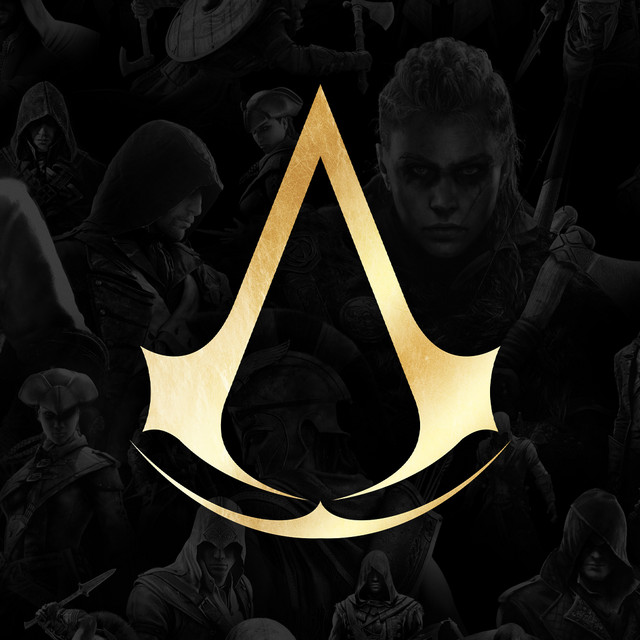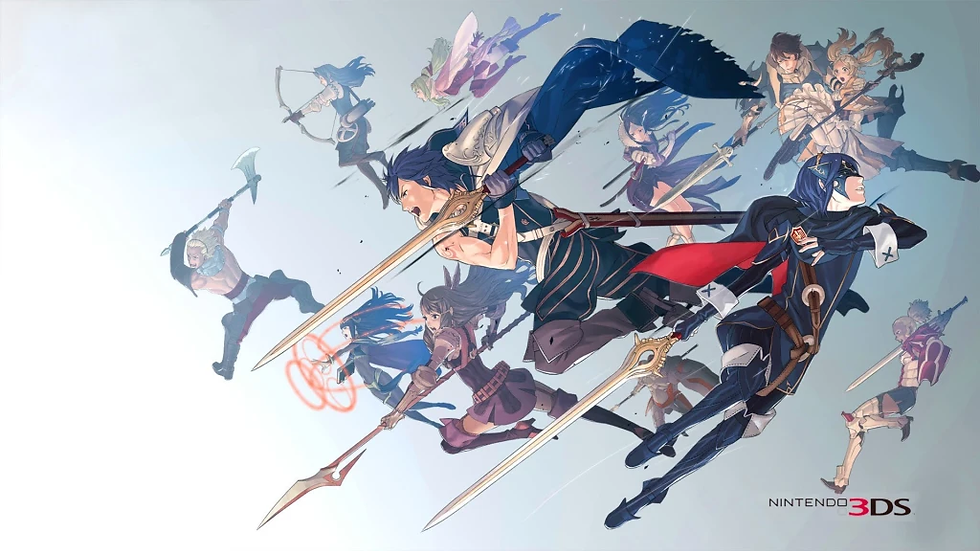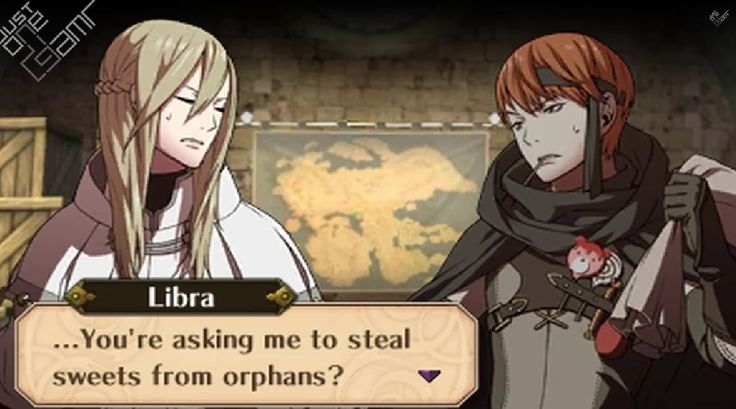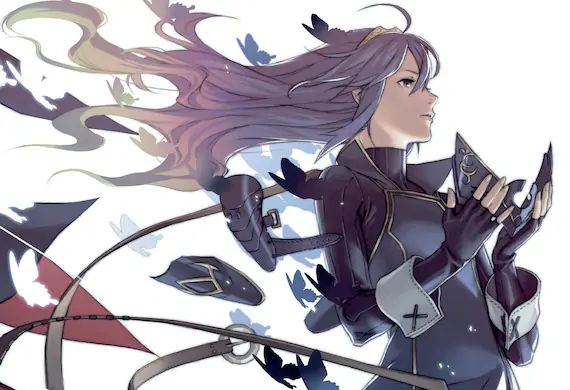Such Bonds Are The True Strength of This Industry
- Jacob Shay
- May 18
- 5 min read

No company plans for their end. But sometimes, the end doesn't ask for permission.
In 2025, studios have been falling at alarming rates. Whether it be from financial ruin or the slow death of alienating their own player base. The modern gaming industry has split its priorities, trapped in the shadow of corporate demands.
Teams of highly passionate and skilled developers are the ones who pay.
Hundreds—sometimes thousands—of developers have lost their jobs in what feels like a daily purge. Under vague pretenses, people lose their livelihood in the name “cost-cuts” or “efficiency”.
What remains is a studio without its years of in-house knowledge, experience, trust, resulting in an unfinished game--not as an exception, but as the new standard for interactive media.
With studios churning out more games than they can finish, it is no longer an 'if' but 'when' this industry will collapse from underneath it's practices.
'One more title' is not a luxury most studios get. But it does raise the question: What would developers make if each project were treated as their swan song--given the space and time? What could passionate creators make if stock holders didn't stand in their way?
In 2010, Intelligent Systems faced that reality with their turn-based strategy RPG series, Fire Emblem.
With diminishing sales, Nintendo made it clear; if the game didn't sell, it would be the last game. The developers had no choice but to pick a god and pray for a miracle.
What resulted was the rebirth of a presumed dead series. In 2025, not ever studio is blessed with a miracle.
A Desynchronization

Inconsistent storytelling and gameplay weren’t the root problems.
They were just the signals.
Ubisoft--once a household name in the industry--had began to rot from the inside out. Multiple sources reported the toxic culture: absurd deadlines, mismanagement, and an environment that burned out its most devoted developers. And that culture bled into the games.
Titles such as Assassin's Creed: Valhalla, and Star Wars: Outlaws were bloated with glitches and shallow narratives. Ubisoft wasn't just slipping, they were collapsing.
The company had turned corporate, and over the last five years, they began chasing metrics and trends that, abandoned community for profit. Industry veterans abandoned the company, that is, if they weren't let go beforehand.
Ubisoft needed a lifeline.
They went with Assassin’s Creed: Shadows, a game set in feudal Japan, something fans had begged for over a decade.
After fifteen years, Ubisoft finally took a leap of faith and crafted their Samurai inspired epic.
The $70 game sold a million of copies in it's first weekend. Ubisoft franchise records.
It was a financial success.
All around, their leap of faith seemed to have worked in the studios favor, and the $70 price tag would ensured the continuation of the company.
Positive reception, great launch, and high praise from game journalists.
Since the peak of 64,000 players concurrent, Shadows dropped to 4,000 low--
A 93.75% decline.
Even in the face of success, Ubisoft proceeded to fall, and their 'Leap of Faith' wouldn't break their fall.
Stock plummeted. The studio panicked. Layoffs ensued, and before long the only shadow left was the fading logo of a AAA studio.
The Awakening

Sell over 250,000 copies. That was the demand from Nintendo. If Intelligent System did not meet the quota, it would be the last game in the franchise. The developers had to make this game as accessible as possible to both newcomers and loyal fans in order to pull this off.
At the time of development, other AAA companies were releasing masterworks such as Halo: Reach, Mass Effect 2, Force Unleashed, and Starcraft. Least to say, space was on everyone's mind and became somewhat of a golden standard. Seeing this, Intelligent Systems nearly made an attempt to make a story that would take place on Mars.
It was flashy, and clearly, space sold well in 2010... but they refused.

Out of fear of alienating their remaining fans, the team chose to look inwards. If they could center in on what had worked before--character bonds, a casual experience for newcomers, and a story that paid homage to the series legacy.
The characters were vibrant yet heartfelt. The story was ambitious, yet grounded. The music was succinct, but evocative. Behind the scenes, the developers were strained, yet devoted.
Within the first week, Awakening sold 242,600 copies. It was the biggest numbers the series had see in ages, but the best ad yet to come. It would be another year before the title travelled internationally to Europe and North America. When the game hit shelves, the game sold an equally impressive 180,000 copies.
The niche, turn-based RPG was not forgotten, and found a new audience while honoring it's previous players, saving them from a quiet end.
The Poets Tale
Between overbearing politics and the crushing weight of expectation, the future remained all but uncertain. All the team could do was rely on each other, and trust that they were doing the right thing.
Now, you may have assumed that I was referring to Intelligent Systems during their tense production phase, but it was not. These were the very same struggles players would live through in Fire Emblem: Awakening.

It became a mirror of their fear, love, and passion for games.
In Awakening, the characters fight to secure a future despite the warnings of a girl sent by time. Despite the many faces of conflict and uncertainty, the cast fights fiercely to protect what remains, calling forth the bonds shared by characters, and the--often times cheesy-- need to remain hopeful.
Intelligent Systems knew the stakes from the beginning, but trust in their fans and their team are what made the difference. In the end, without knowing what would happen, the developers made a game full of heart. For them, that was enough.
The Future Is Not Written
Both Ubisoft and Intelligent Systems faced what would be their end. But the day wasn't decided by metrics, not by tightened deadlines, and most certainly not by threats against their employment.
It was decided by the passion left by creators who had one last chance.
Ubisoft did not crumble. After the release of Assassin's Creed: Shadows, the company was bailed out from their financial ruin. Not by a passionate community of fans, but by an expectant hand waiting for their share of profits.
Ubisoft survived their best day.
And yet, their future remains uncertain—as it always has been.
Games are meant to inspire and connect. When they do, communities gather. Not for profit, but for the vision, purpose and a reason to keep playing. I'd like to think that if every team of developers were given one last chance, it might lead them on an expedition of their own...





Comments